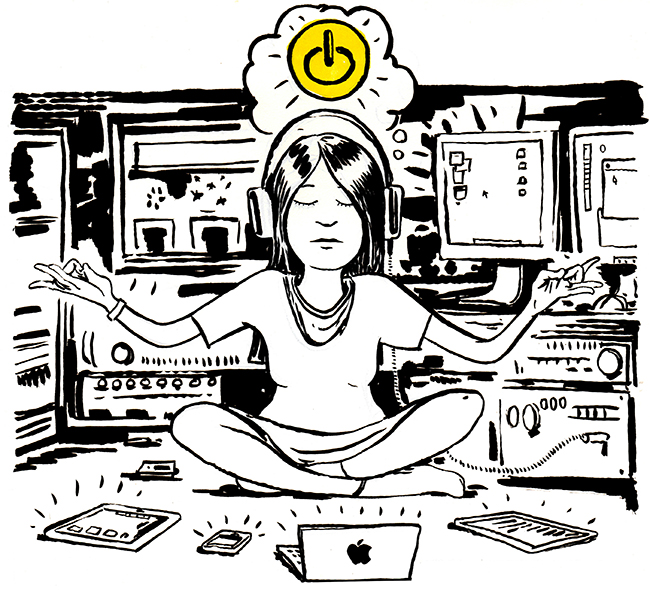ZEITGUIDE TO THE SURPRISE DROP

Does anyone announce a release date in advance anymore? Last week Kendrick Lamar put out an unexpected collection of outtakes, “Untitled, Unmastered.” Rihanna pulled the same surprise release with “Anti” in January.
Why would top music artists forgo the media hype and fan anticipation?
Beyoncé said she was bored with record releases when she did a surprise digital drop just before Christmas in 2013. It quickly broke iTunes sales records and popularized the strategy. “I feel like I am able to speak directly to my fans,” she said in a press release at the time. “There’s so much that gets between the music, the artist and the fans.”
As it turns out, there are some advantages to the surprise approach, neuroscientifically speaking.
Whether it’s a surprise party or getting three scoops of ice cream when you paid for two, our brains are wired to love the unexpected. A study published last year by researchers at Emory University and Baylor College of Medicine showed that exposure to unpredictable patterns stimulated activity in the same pleasure centers of the brain that are triggered by cocaine use or when we’re expecting money. “The brain finds unexpected pleasure more rewarding than expected ones, and it may have little to do with what people say they like,” wrote the study’s authors.
And in an era when consumers are bombarded with new content, it’s a way to make news. A quick surprise release after an album is finished can also cut down on potential leaks and piracy. After all, an album release date is meaningless when you can find half the songs on YouTube weeks in advance.
The “sudden-drop” strategy is also finding its way into other media. Louis C.K. began releasing episodes of a new show, “Horace and Pete,” on his website at the end of January without any prior promotion. J.J. Abrams kept his horror film “10 Cloverfield Lane” largely secret. The actors weren’t even told the final title of the movie until the trailer arrived in theaters in January. “There’s something thrilling about the ability to give something to the public that doesn’t require months of study or anticipation,” says Abrams. “They can just say: ‘Ooh, this seems like fun. Let’s go do it.’”
Of course, to pull off the surprise release, it helps to have a loyal fan base and tremendous creative autonomy. Says publicist Sarah Avrin, “It has to be an artist who can mobilize their entire fan base in a matter of minutes, whether it’s with a new record, a video, or a statement about feminism.”
The surprise release also may be telling about how these top artists are looking at the entertainment business. Albums from Drake and Beyoncé, even with a typical release strategy, would still have massive sales. Do surprise releases, then, really signal a desire to further remove studios and record companies from the creative process — especially now that major artists can get all the promotion they need through social media?
Of course, as it becomes ubiquitous the surprise becomes routine. But the independence that artists have to create, promote and release their work will only continue to grow.
